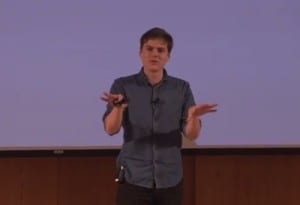What is Moonshot Thinking?
Moonshot thinking is a type of creative problem-solving approach that involves setting ambitious, seemingly impossible goals and working to achieve them. The term “moonshot” refers to the United States’ Apollo 11 mission, which sent the first humans to the moon in 1969. This mission was considered a “moonshot” because it was an ambitious, high-risk project that required significant resources and effort, and seemed unlikely to succeed when it was first proposed.
Moonshot thinking involves setting bold, audacious goals that require significant innovation and creativity to achieve. It is based on the idea that by setting these types of goals, organizations can drive progress and create significant impact. Moonshot thinking often involves taking a risk-tolerant approach, and embracing uncertainty and failure as a part of the learning and innovation process.
Moonshot thinking is often used in a variety of contexts, including business, technology, and social impact. It is often used in conjunction with other problem-solving approaches, such as design thinking and lean startup, to help organizations develop innovative solutions to complex challenges.
Here is a video on moonshot thinking you might like:
Description of Duke School of Business Video: Will Patrick — Rapid Evaluator, Google X
“Moonshot Thinking.” Moonshots live in the gray area between audacious technology and pure science fiction. Instead of a mere 10% gain, a moonshot aims for a 10x improvement over what currently exists. The combination of a huge problem, a radical solution to that problem and the breakthrough technology that just might make that solution possible, is the essence of a moonshot. After introducing the audience to moonshots, Will finishes our day with his perspective on the innovations and enthusiasm at Google X. A fantastic way to wrap-up our conference; truly “Beyond the Bottom Line” and the essence of The Duke Conference on Sustainable Business and Social Impact!
The Duke Conference on Sustainable Business and Social Impact is an annual event hosted by the Duke MBA Net Impact Club that attracts 400 attendees to The Fuqua School of Business to discuss current issues and opportunities in sustainable and socially responsible business. This video features a keynote speaker at the 2013 conference on Wednesday, February 20th, which focused on “Beyond the Bottom Line” issues and innovations in the fields of Sustainability, Finance, Social and Technology.
More information available at: http://bit.ly/DukeSBSI2013.
